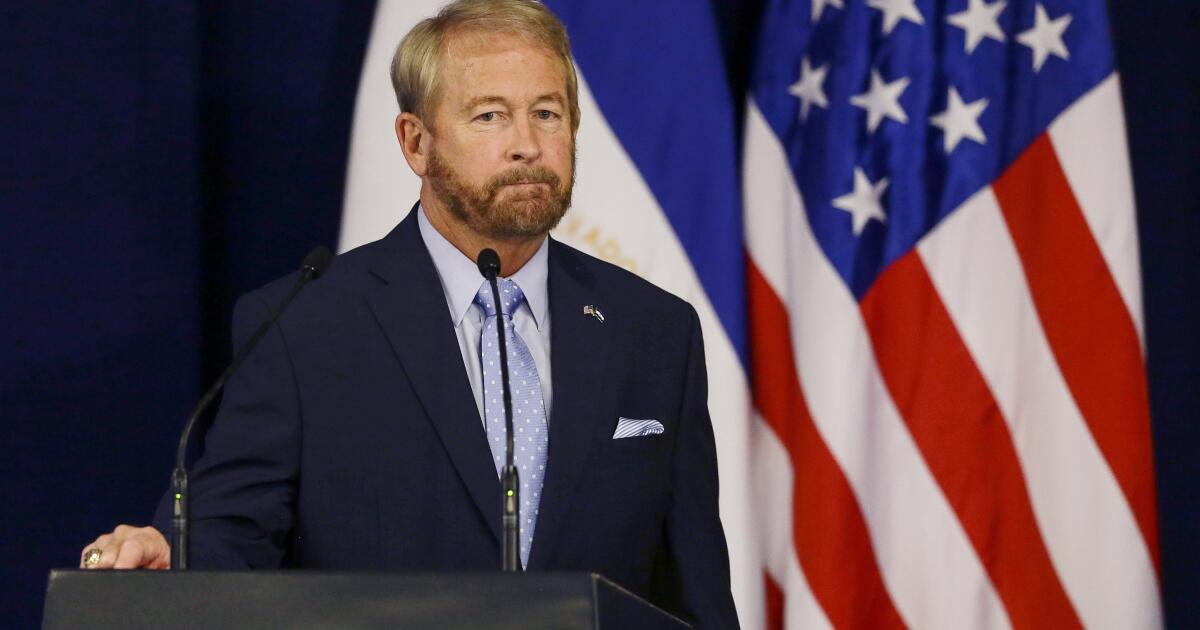President Biden’s campaign on Monday brushed off the findings of new polls from The New York Times, Siena College and The Philadelphia Inquirer that found him trailing in five of the presidential battleground states, dismissing their significance and arguing that the president still has six months left before Election Day to persuade voters to support him.
“Drawing broad conclusions about the race based on results from one poll is a mistake,” said Geoff Garin, one of the Biden campaign’s pollsters. “The reality is that many voters are not paying close attention to the election and have not started making up their minds — a dynamic also reflected in today’s poll. These voters will decide this election and only the Biden campaign is doing the work to win them over.”
Mr. Garin’s comments, which the campaign distributed to reporters on Monday morning, came as part of the Biden campaign’s regular playbook for responding to bad polls.
On Monday, Biden aides dismissed the polling industry as inherently broken, arguing about the metrics and reminding supporters of other polls that show Mr. Biden in a better position. The campaign’s aides and allies sought to emphasize how many months remain before Election Day and highlighted the structural and financial advantages the Biden campaign has built while former President Donald J. Trump is tied up in court.
Working the spin on polling is an ever-present effort for Mr. Biden and his campaign.
In the weekend before the latest poll was released, Mr. Biden traveled to the West Coast. Speaking to donors in San Francisco and the Seattle area, he made the case that they should ignore the polling — especially if it looks bad for him.
“People are engaged, no matter what the polling data says,” Mr. Biden said Friday in Seattle. “It’s awful hard to judge the polls these days because they’re so difficult to take.”
The president’s comments suggest he is a close reader of other public polling that mirrors the findings from The Times and Siena College, which found a sizable gap between registered and likely voters.
“We run strongest among likely voters in the polling data,” he told supporters at a campaign fund-raiser on Saturday in Medina, Wash., an upscale suburb of Seattle. “That’s a good sign. And while the national polls basically have us registered voters up by four, likely voters we’re up by more.”
And then there’s Mr. Biden’s campaign, which has opened 150 offices with more than 500 staff members across the battleground states. Those employees, along with what is expected to be a $2 billion advertising campaign by the end of this cycle, are aiming to turn the November election into a referendum not on Mr. Biden, but on his predecessor, by reminding voters about Mr. Trump’s record on abortion and democracy.
Part of Mr. Biden’s problem, his aides and advisers have said for nearly a year, is that too many voters have forgotten the most alarming parts of the Trump years. Mr. Biden’s campaign aides — and the president himself — have gone to great lengths to try to highlight Mr. Trump’s part in limiting abortion rights and his public statements about democracy and health care.
“Trump is trying to make the country forget how dark and unsettling things were when he was president,” Mr. Biden said at the Seattle fund-raiser. “But we’re never going to forget.”




















